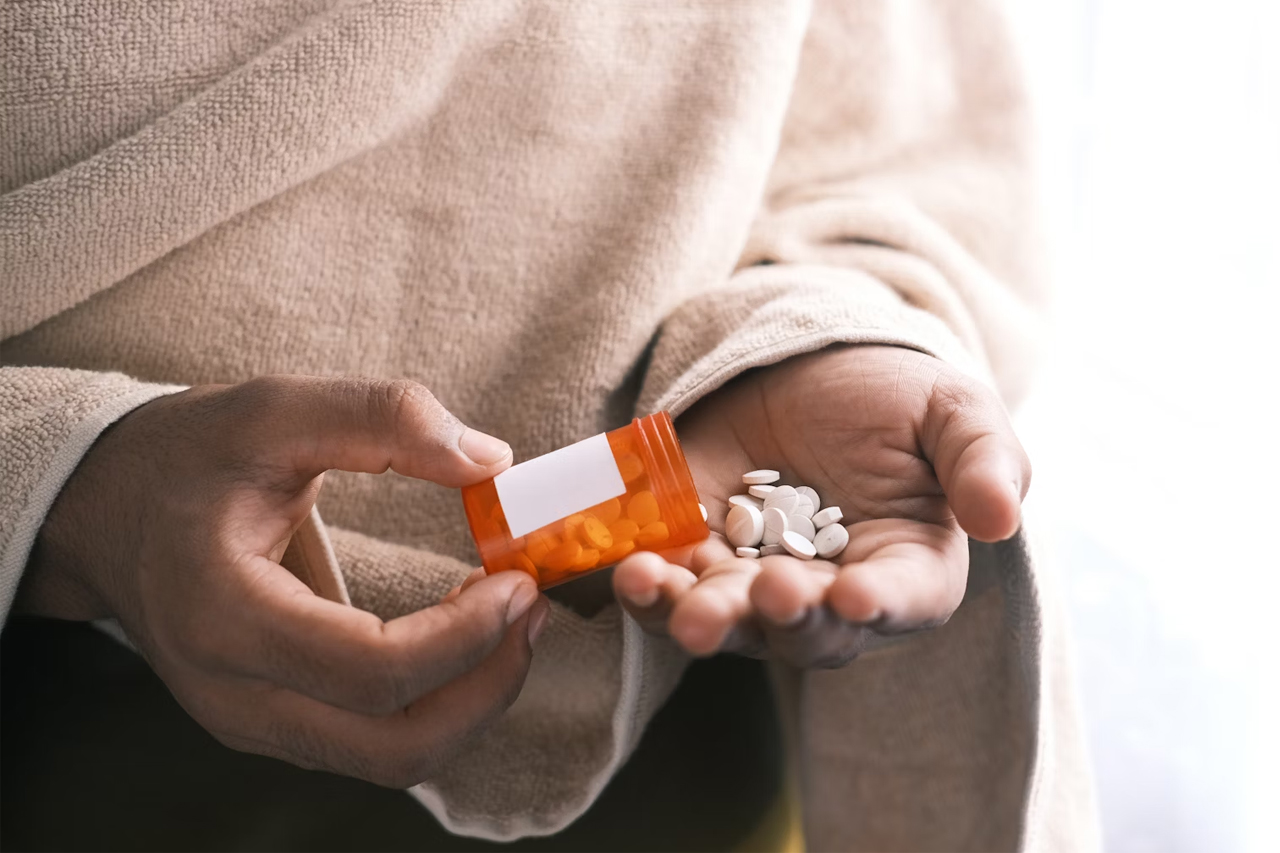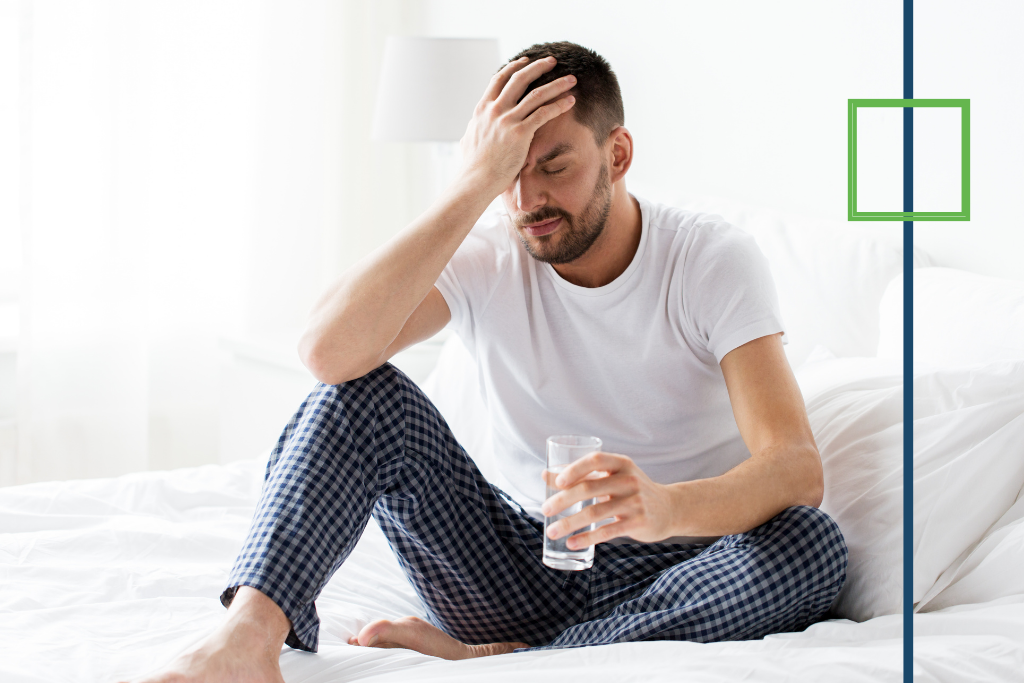Hydrocodone is a semisynthetic opioid prescribed for pain management known to have the potential for the development of dependence and, if the use is discontinued, for hydrocodone withdrawal symptoms. Exactly because of its potential for misuse and addiction, certain brands, such as Vicodin, Norco, and Lortab, which represented a combination of hydrocodone and acetaminophen, aspirin, or ibuprofen, were discontinued. However, certain combinations of hydrocodone and other substances are still available on the market (e.g., Hysingla).
Hydrocodone is prescribed for moderate to moderately severe pain, and its potency is similar to that of morphine. Other than for medical reasons, opioids are taken without a prescription due to their ability to cause euphoria. This non-medical use, use without medical supervision, as well as misuse, can result in dependence and, with it, related problems. Facilities like We Level Up Lawrenceville NJ offer specialized programs designed to address the complexities of opioid addiction, providing a path towards recovery and well-being.
According to the World Health Organization and its data from 2021, around 60 million people used opioids in 2021 alone. In the US alone, in 2019, there were over 70.000 deaths due to overdose, half of which involved synthetic opioids. Understanding the symptoms of hydrocodone withdrawal is the first step to managing it successfully and preventing future relapses or, in the worst case, death.
Skip to:
What you should know about hydrocodone withdrawal symptoms
Although frequently prescribed for pain relief, using hydrocodone can have some side effects, like drowsiness, dizziness, nausea, constipation, and urinary retention, but also depressed respiration if used in higher amounts. Finally, its excessive use, whether in terms of quantity or length of use, can lead to dependence and addiction. If, after dependence has developed, you decide to stop taking it, hydrocodone withdrawal symptoms are likely to appear.

Figuring out if you are going through hydrocodone withdrawal can help you seek help on time. Although serious complications related to the withdrawal symptoms of hydrocodone are not very frequent, they can still occur, and the detoxification is very unpleasant. Additionally, suppose that the professionals’ medically assisted treatment does not address some withdrawal symptoms. In that case, they can escalate and create serious dehydration problems and heart failure as a result of untreated hydrocodone withdrawal symptoms.
There are additional dangers if you try to address the symptoms of hydrocodone withdrawal on your own. Those addicted to opioids are likely to self-medicate or mix substances, believing it will help with pain relief. The effects of hydrocodone and alcohol on your body are very dangerous and increase the risk of overdose and death. Accidental overdoses are a possibility when self-medicating as well.
Considering this, it is unsurprising that institutions like the World Health Organization and the FDA strongly suggest medical assistance in withdrawal management.

What are the withdrawal symptoms of hydrocodone?
Becoming physically sick after you stopped taking hydrocodone may be an indicator that you became physically dependent. The symptoms of hydrocodone withdrawal are very similar to flu symptoms, making it difficult to realize that the dependence developed.
Your withdrawal can be categorized as mild, moderate, moderately severe, or severe, depending on many factors, such as the length of the use, the interval between doses, the quantity taken, etc. Psychological factors also play a role in the severity of withdrawal symptoms. Your doctor can evaluate your dependence based on your history of use and the hydrocodone withdrawal symptoms displayed. Doctors may also use specific assessment scales to evaluate commonly seen signs and symptoms of opioid withdrawal. Additionally, a urine sample might be taken to exclude other issues or withdrawal symptoms from other opioids.
Get Help. Get Better. Get Your Life Back.
Searching for Accredited Drug & Alcohol Rehab Centers Near You? Or Mental Health Support?
Even if you have failed previously, relapsed, or are in a difficult crisis, we stand ready to support you. Our trusted behavioral health specialists will not give up on you. Call us when you feel ready or want someone to speak to about therapy alternatives to change your life. Even if we cannot assist you, we will lead you wherever you can get support. There is no obligation. Call our hotline today.
FREE Addiction Hotline – Call 24/7Symptoms of hydrocodone withdrawal can be divided into early symptoms, typically experienced in the first 24 hours after the last hydrocodone intake, and later symptoms, usually experienced after the first day and can be more intense.
Early withdrawal symptoms from hydrocodone are:
- Runny nose
- Eyes tearing up
- Frequent yawning
- Excessive sweating
- Bone and muscle aches
- Restlessness
- Anxiety and agitation
- Insomnia
Later symptoms include:
- Nausea and vomiting
- Diarrhea
- Lack of appetite
- Abdominal cramping or hyperreflexia
- Enlarged pupils and the possibility of blurred vision
- Goosebumps on the skin, chills
- Fast pulse
- High blood pressure
- High body temperature or hot and cold flashes
Learning about hydrocodone withdrawal symptoms will help you understand those subtle differences compared to other opioids. Reading about hydrocodone vs oxycodone can provide you with valuable insights and help you recognize if someone in your environment is dealing with opioid dependence. A useful piece of information is also the hydrocodone withdrawal timeline, as this can imply whether you are struggling with flu symptoms or you are experiencing withdrawal.
Bear in mind that certain categories of hydrocodone users are at higher risk of developing dependence and later experiencing symptoms of hydrocodone withdrawal. You are more likely to experience withdrawal symptoms if:
- You´ve been taking a high dose of hydrocodone
- You´ve been taking hydrocodone for more than six months
- You reduced your dose of hydrocodone too quickly.
Taking hydrocodone every day for as little as one month can result in experiencing symptoms of hydrocodone withdrawal. You could still develop a dependence on the medication even if you were taking it exactly as your doctor instructed.

Get Your Life Back
Find Hope & Recovery. Get Safe Comfortable Detox, Addiction Rehab & Mental Health Dual Diagnosis High-Quality Care at the We Level Up Treatment Centers Network.
Hotline (877) 378-4154The hydrocodone withdrawal timeline
After learning how long hydrocodone stays in your system, you might wonder how long the withdrawal will take. Since every substance use experience is unique due to personal and environmental factors, some differences in the hydrocodone detox timeline are to be expected. Still, according to DSM-5 (the Diagnostic and Statistical Manual of Mental Disorders), there are some common phases when dealing with symptoms of hydrocodone withdrawal.
- 6–12 hours after the last dose, those dependent on hydrocodone will start having their first hydrocodone withdrawal symptoms.
- 1-3 days after the last dose, acute symptoms of hydrocodone withdrawal usually peak in this period.
- 5-7 days after the last dose, the acute withdrawal symptoms of hydrocodone start calming down.
- Weeks or months after the last dose: Unlike acute symptoms, chronic symptoms of hydrocodone withdrawal, like anxiety, depressive states, or insomnia, may continue for months after the last hydrocodone use.

Hydrocodone detox options and withdrawal treatment
Hydrocodone withdrawal symptoms can be very uncomfortable, making professional treatment indispensable. Without the assistance of rehabilitation centers like the detox center in NJ, the risk of relapse grows as more people seek other opioids to deal with pain and flu-like symptoms. Additionally, symptoms and side effects can be lethal under certain circumstances, making professional help that much more important.
Medical withdrawal management, or medically assisted detox, is a combination of inpatient and outpatient treatments aiming to provide not just detoxification but also follow-up to ensure long-term recovery. A safe space for a comfortable detox is the first step. Additionally, inpatient rehabilitation can offer medical assistance when needed, as well as physical and emotional support, pain management, adequate nutrition, supplementary therapy, etc.
No two opioid experiences are the same, and the prescription drug treatment center in NJ can address that. A personalized approach to inpatient treatment for substance disorders, qualified staff, and first-class facilities at We Level Up rehab facilities in New Jersey are guaranteed to provide a safe environment and support for patients and their families.
First-class Facilities & Amenities
World-class High-Quality Addiction & Mental Health Rehabilitation Treatment
Rehab Centers TourRenowned Addiction Centers. Serene Private Facilities. Inpatient rehab programs vary.
Addiction Helpline (877) 378-4154Proven recovery success experience, backed by a Team w/ History of:
15+
Years of Unified Experience
100s
5-Star Reviews Across Our Centers
10K
Recovery Success Stories Across Our Network
- Low Patient to Therapist Ratio
- Onsite Medical Detox Center
- Comprehensive Dual-Diagnosis Treatment
- Complimentary Family & Alumni Programs
- Coaching, Recovery & Personal Development Events
Knowing the importance of psychological factors for both the severity of the withdrawal symptoms and the recovery, we aim to provide psychological support as well. A variety of individual and group psychotherapies are available. When feasible, family therapy is also organized. Finally, alternative forms of therapy are also provided as part of the inpatient treatment.
The detox is essential when addressing hydrocodone withdrawal symptoms, but the levels of care that follow are advised to establish full sobriety and a good quality of life. The following levels of treatment, like outpatient rehab and aftercare, are meant to establish a routine and assist with getting back on track while the patient is back in their environment. We Level Up New Jersey has a well-established alumni program as a part of its aftercare, assuring that recoveries feel supported even after leaving our facilities.
Medications for managing hydrocodone withdrawal
An array of medications is used to fight the symptoms of hydrocodone withdrawal. Among the common ones are Clonidine, Buprenorphine, and Lofexidine, but probably the most frequently used one is Methadone.
These medications fall into the category of partial agonists or antagonists. Partial-agonist medications bind to and stimulate opioid receptors in the brain but don´t activate them to the same level as hard drugs. Antagonist medications also bind to the receptors, but instead of activating them, they block them.
Here is a short list of the impacts some of the popular drugs for hydrocodone withdrawal symptoms management have.
- Methadone decreases cravings and manages symptoms.
- Clonidine: Ensures some physical withdrawal symptoms of hydrocodone relief, such as sweating, vomiting, chills, insomnia, etc.
- Buprenorphine, the same as methadone, reduces cravings and helps manage hydrocodone withdrawal symptoms.
- Lofexidine: Alleviates symptoms of hydrocodone withdrawal.
The choice of medication depends on the severity of withdrawal symptoms from hydrocodone. Methadone is a popular choice for both detox and long-term medical maintenance due to its low risk of dependence. Buprenorphine is another commonly used drug, more frequently prescribed when someone is dealing with hydrocodone dependence, but shows no signs of withdrawal symptoms from hydrocodone. Their main functions are to reduce the risk of overdose and relapse while a person is fighting withdrawal symptoms of hydrocodone.
Both of these drugs can be used for medical detox as soon as withdrawal symptoms appear, and their use can be continued long-term after the formula drug treatment. Keep in mind that the Food and Drug Administration and the Drug Enforcement Administration have only authorized hospital pharmacies and doctors to distribute and use methadone.
Certain additional medications might be prescribed to combat hydrocodone withdrawal symptoms. Typical choices are loperamide for diarrhea, promethazine for nausea and vomiting, and ibuprofen for myalgia. If a person is experiencing high blood pressure, clonidine may be introduced.

A word of advice
Although withdrawal symptoms of hydrocodone might seem like regular flu symptoms and, therefore, something you can overcome on your own, seeking professional help can reduce the pain and discomfort you are feeling and ensure your safe and timely recovery.
Recognizing you are struggling with opioid dependence is the first step, so be sure to read available and reliable sources on hydrocodone withdrawal symptoms and get acquainted with similarities and differences compared to other dependence-developing substances. Keep in mind the negative consequences of self-medicating as a form of trying to deal with withdrawal issues alone, and choose safety and assistance instead of struggle and pain.
No substance dependence experience is easy, but with proper medical and psychological support, you can overcome challenges along the way. We Level Up Lawrenceville New Jersey, is here to support you in any way you need, whether with inpatient or outpatient treatment, medically assisted therapy, or psychotherapy.
If you or your loved ones are experiencing what seems like hydrocodone withdrawal symptoms or have doubts about the development of hydrocodone dependence, be sure to contact professional services to learn more about detox and treatment options.
Experience Transformative Recovery at the We Level Up Treatment Center.
See our authentic success stories. Get inspired. Get the help you deserve.



Start a New Life
Begin with a free call to an addiction & behavioral health treatment advisor. Learn more about our dual-diagnosis programs. The We Level Up treatment center network delivers various recovery programs at each treatment facility. Call to learn more.
- Personalized Care
- Caring Accountable Staff
- World-class Amenities
- Licensed & Accredited
- Renowned w/ 5-Star Reviews




